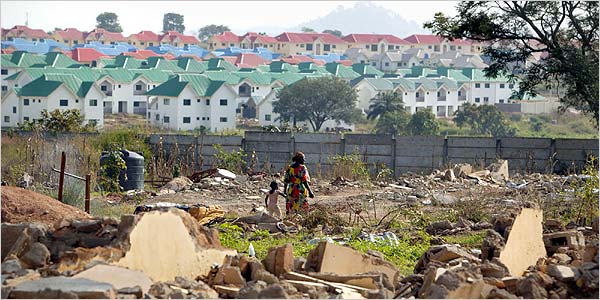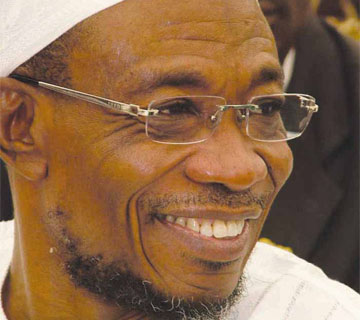President Goodluck Jonathan has reaffirmed the determination of his administration to address over 17 million housing deficit in the country through equitable access to land and housing revolution.

He commended efforts made by the Minister of Housing in the formulation of the new housing policy and called on the ministry to translate the policies into a road map that will revolutionise housing in the country.
The president noted that the National Housing Policy and National Urban Development Policy that were launched in June are appropriate for a coordinated and reinvigorated response to the nation’s housing sector.
These policies, he stated “will be translated into a road map to achieve a housing revolution.”
The new housing policy seeks to construct one million houses every year across the country
This is coming just as the Nigerian Institute of Estate Surveyors and Valuers (NIESV), last week urged the federal government to build on the new housing policy by creating an enabling environment for the private sector to develop housing units that will help bridge the housing deficit.
Executives of the NIESV, also advocated easy access to land and mortgage finance for mass housing in Nigeria.
Despite the dictates of the Nigerian constitution that demands suitable and adequate shelter for all citizens, over the years the delivery of adequate and affordable housing in Nigeria has not met the expectations and this President Jonathan noted is a major concern for his administration.
63 million not properly housed
According to the Minister of Finance Nigeria, Dr Ngozi Okonjo-Iweala, the county is experiencing huge urbanisation that is not matched with adequate housing.
She expressed her astonishment asking the question “why the deficit in housing in a country of over 167 million people.”
She further lamented the state of the nation’s mortgage system, revealing that “the country has issued just about 20,000 mortgages as at today,” adding that “and we do not have a sustainable mortgage system that can reach a wide number of Nigerians.”
The Deputy Governor, Financial System Stability, of the Central Bank of Nigeria, Mr Kingsley Moghalu, recently claimed that about 63 million Nigerians are not living in proper houses due to under-development in the housing sector.
“Paradoxically, with a huge population of 150 million people, 63 million of which are not properly housed and a rising demand for housing finance, the Nigerian housing mortgage sector remains grossly underdeveloped,” the CBN executive said at a stakeholders’ roundtable on Housing and Mortgage Finance in Abuja.
“Housing demand is estimated at 14 million housing units resulting in a funding deficit of N49 trillion” he added.
Some of the challenges the retreat will tackle include poor incentives for the provision of affordable housing, inadequate budgetary allocation, prevalence of unskilled local personnel and artisans in the building industry, poor land administration, non-availability and high cost of building materials.
These issues, according to the Minister of Lands, Housing and urban development, Mrs Amal Pepple, are of great concern, hence the need for a housing policy recently launched.
The retreat also featured talks and papers from experts in housing and urban development in the private sector.



